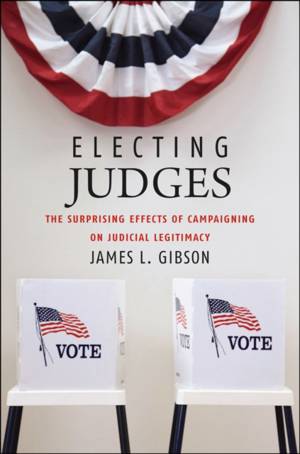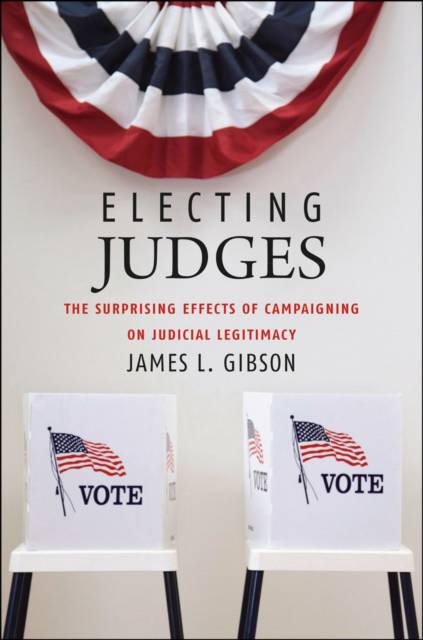
- Afhalen na 1 uur in een winkel met voorraad
- Gratis thuislevering in België vanaf € 30
- Ruim aanbod met 7 miljoen producten
- Afhalen na 1 uur in een winkel met voorraad
- Gratis thuislevering in België vanaf € 30
- Ruim aanbod met 7 miljoen producten
Zoeken
€ 102,95
+ 205 punten
Omschrijving
In Electing Judges, leading judicial politics scholar James L. Gibson responds tothe growing chorus of critics who fear that the politics of running for office undermine judicial independence and even the rule of law. While many people have opinions on the topic, few have supported them with actual empirical evidence. Gibson rectifies this situation, offering the most systematic and comprehensive study to date of the impact of campaigns on public perceptions of fairness, impartiality, and the legitimacy of elected state courts-and his findings are both counterintuitive and controversial. Gibson finds that ordinary Americans do not conclude from campaign promises that judges are incapable of making impartial decisions. Instead, he shows, they understand the process of deciding cases to be an exercise in policy making, rather than of simply applying laws to individual cases-and consequently think it's important for candidates to reveal where they stand on important issues. Negative advertising also turns out to have a limited effect on perceptions of judicial legitimacy, though the same cannot be said for widely hated campaign contributions. Taking both the good and bad into consideration, Gibson argues persuasively that elections are ultimately beneficial in boosting the institutional legitimacy of courts, despite the slight negative effects of some campaign activities. Electing Judges will initiate a lively debate inside both the halls of justice and the academy.
Specificaties
Betrokkenen
- Auteur(s):
- Uitgeverij:
Inhoud
- Aantal bladzijden:
- 240
- Taal:
- Engels
- Reeks:
Eigenschappen
- Productcode (EAN):
- 9780226291079
- Verschijningsdatum:
- 20/09/2012
- Uitvoering:
- Hardcover
- Formaat:
- Ongenaaid / garenloos gebonden
- Afmetingen:
- 155 mm x 226 mm
- Gewicht:
- 453 g

Alleen bij Standaard Boekhandel
+ 205 punten op je klantenkaart van Standaard Boekhandel
Beoordelingen
We publiceren alleen reviews die voldoen aan de voorwaarden voor reviews. Bekijk onze voorwaarden voor reviews.







